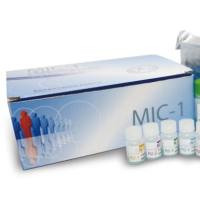Prenatal Diagnosis of Chromosomal Abnormalities Using Maternal Blood
互联网
457
Fetal chromosomal aneuploidies can be detected by fluorescent in situ hybridization (FISH) analysis of intact fetal cells circulating in maternal blood. Given the low number of circulating fetal cells (1 in 104 to 106 maternal cells) at any given time during pregnancy and given that no fetal-specific markers can unambiguously distinguish maternal from fetal cells, success in fetal cell analysis relies on hybridization and detection efficiency of probes in cells recovered following some formal enrichment. Consequently, many different protocols have been developed using one or more techniques to enrich and improve purity of fetal cells for subsequent FISH. FISH analysis is complicated by enrichment not being 100 percent efficient, yielding heterogeneous mixtures of cell types that require different FISH conditions for optimal signal detection. In addition, certain methods used during enrichment, namely fixation and storage of cells, can adversely affect the quality of cells recovered for FISH analysis. The focus of this chapter will be to highlight variables that impact FISH analysis of fetal cells recovered from maternal blood. Detailed description of the methods developed at Baylor College of Medicine is provided. Recovery of fetal cells for DNA analysis using PCR techniques will not be reviewed; however, several recent reviews are recommended (1 –3 ).







